Resistance (27 page)
Authors: Israel Gutman

Â
The notice also stated that severe retaliation would be taken against those who assisted and served the enemy.
Shortly after Lejkin's execution, an employee of the Judenrat, Yisrael First, was also punished in the same manner. First had been a confidant of the German police in the ghetto and in the ranks of the Judenrat. The execution made a strong impression in the ghetto and demonstrated to the public that there was an avenging force within its confines. In response, police personnel, who had previously been haughty and arrogant, tried to hide their identity by setting aside their insignia and caps.
The Jewish Fighting Organization had started the campaign of punishment to get back at those who actively and brutally as sisted the Nazis during the deportation. But after their first encounters, it became clear that the results went much further. There was considerable discomfort and anxiety among others who had carried out German orders. Members of the Jewish Fighting Organization soon understood that it would not be difficult for them to impose their authority on the various branches of Jewish administrative personnel in the ghetto.
Â
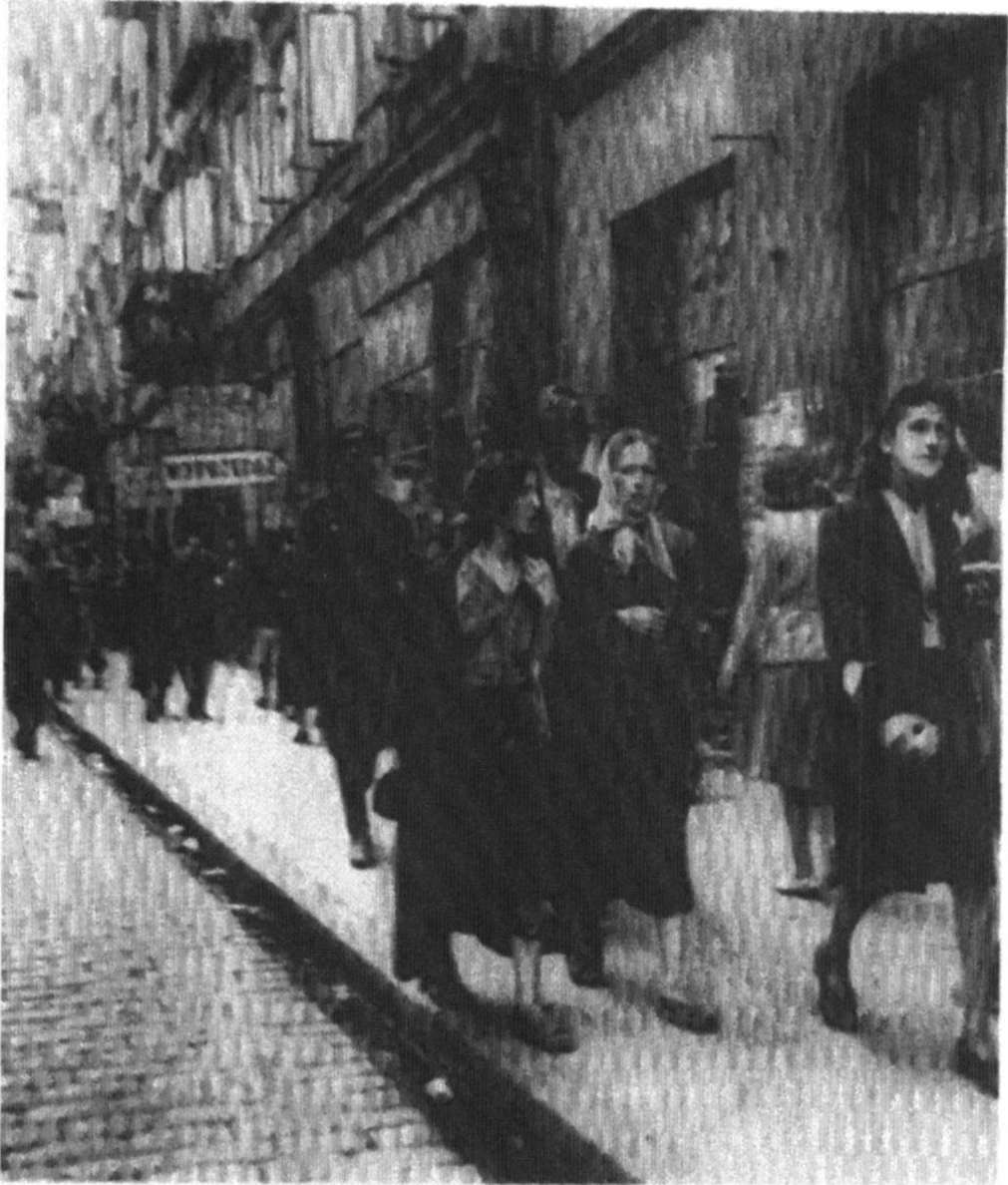
Â
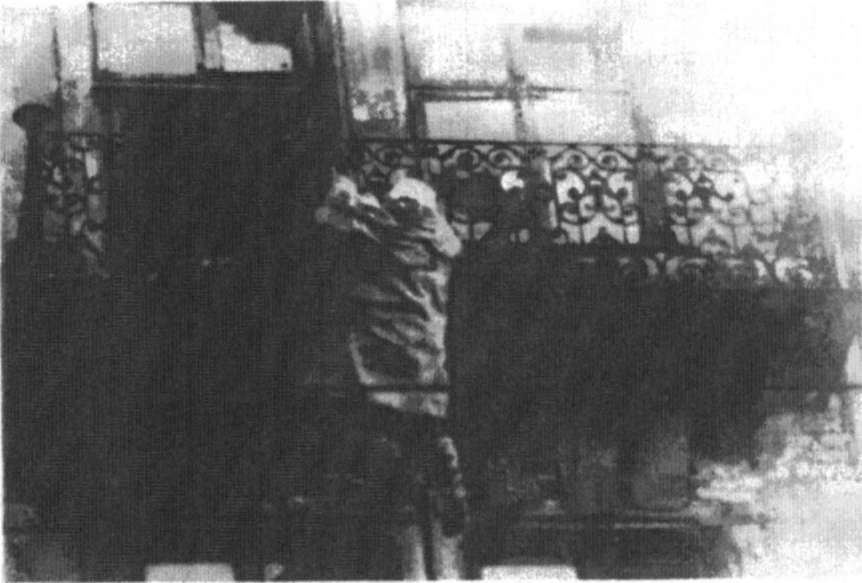
Â
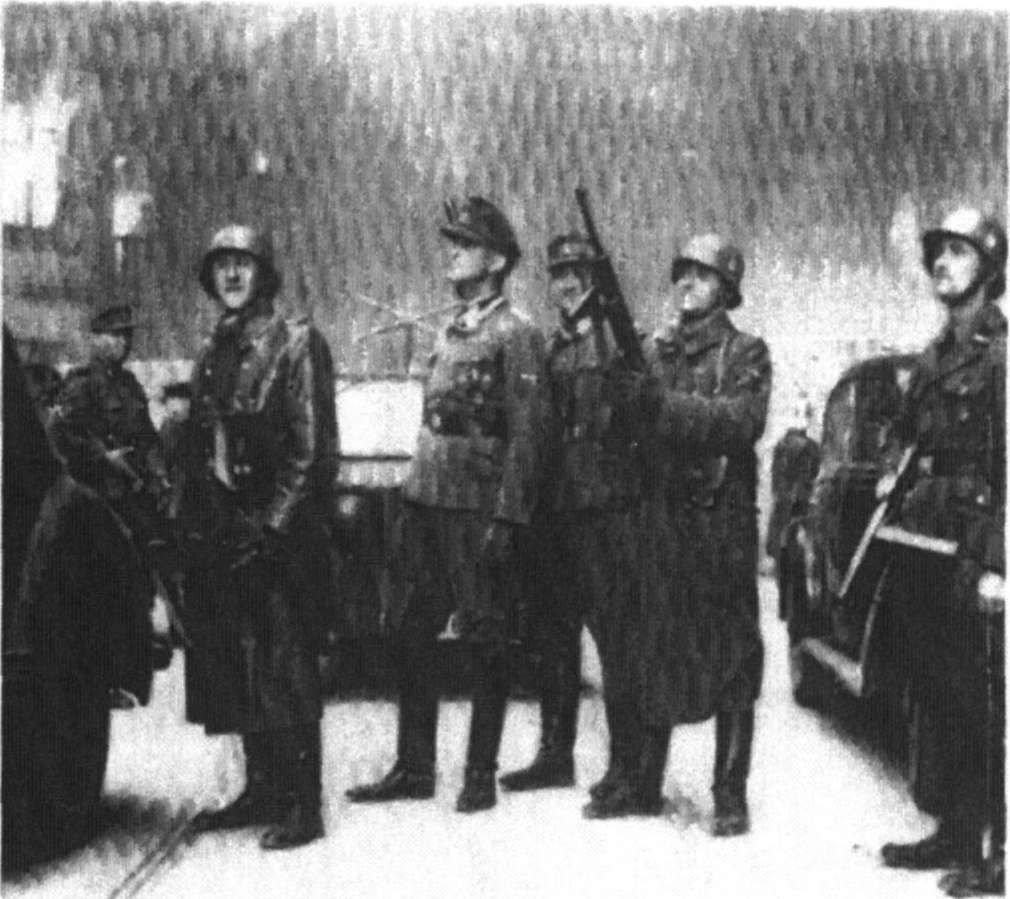
(Stroop Report.
National Archives, Washington, D.C.)
Â
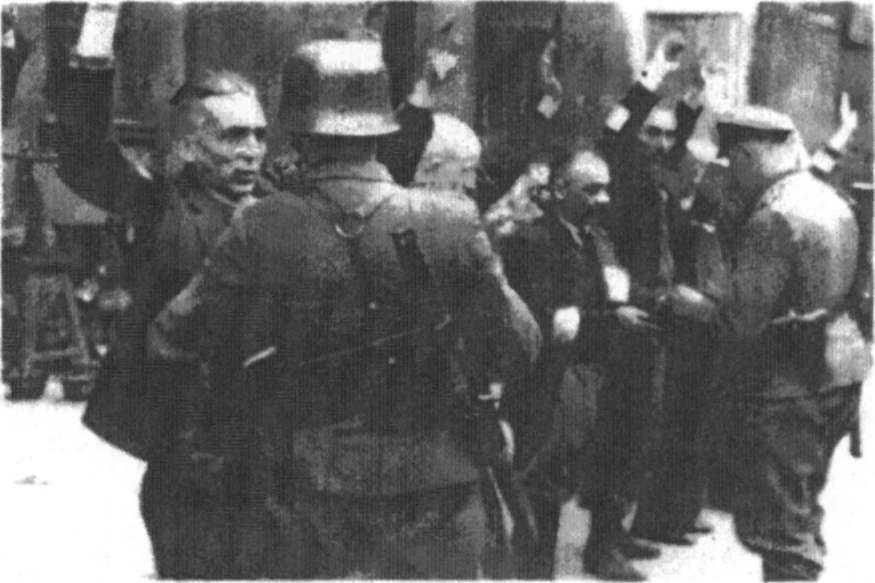
(Stroop Report.
National Archives, Washington, D.C.)
Â
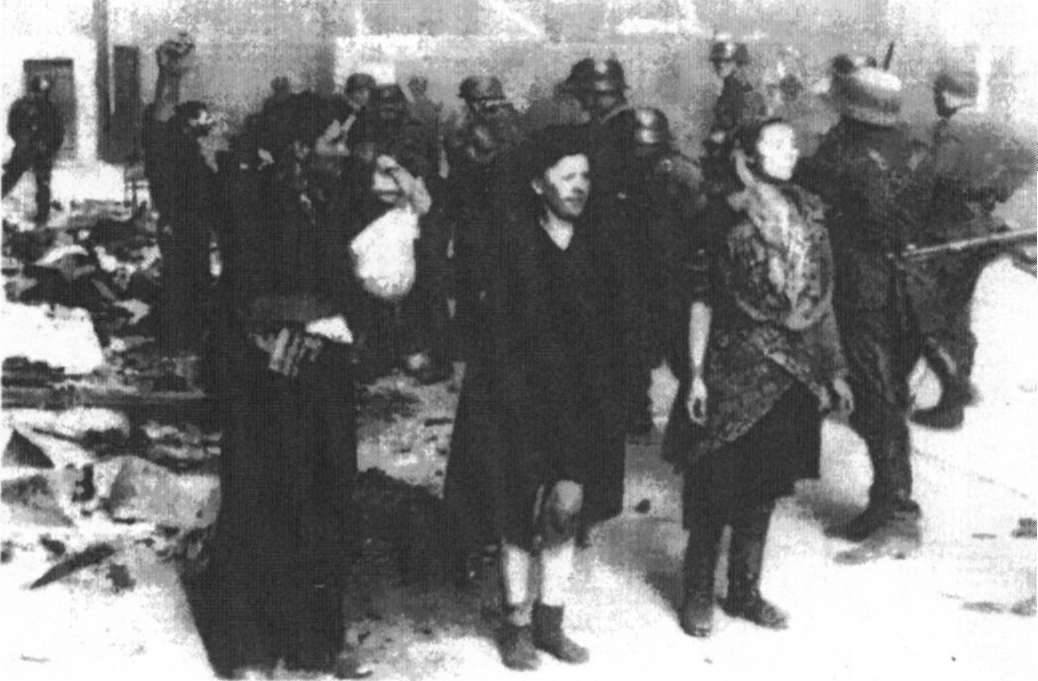
(Stroop Report,
National Archives, Washington, D.C.)
Â
While the organization was establishing itself in the ghetto, its representatives were contacting factions in the Polish underground attached to the London-based Polish government-in-exile on the Polish side of the city. From February 1, 1942, a department for Jewish affairs was active within the framework of the Polish military underground, the AK. Henryk Wolinski, a Polish lawyer whose nickname in the underground was Waclaw, headed this department. He was a sensitive man who understood the distress and tragedy being suffered by the Jews.
It was only at the end of the great deportation that the first contact between the ghetto and the armed forces of the Polish underground was made. The mediator for the Jewish side was Leon Feiner (known as Mikolaj in the underground), a Bund member from the Polish side of the city. He requested that information be passed on to Shmuel Zygelbojm, a member of the National Polish Council in London on behalf of the Bund. From Wolinski's report, it was clear that during the expulsion there was no regular contact with the ghetto and that nothing was done by the Polish military underground to come to the Jews' aid. These facts were in complete contradiction to the story invented by General Tadeusz Komorowski ("Bor"), deputy commander of the AK and later its chief commander. Komorowski claimed in the book he published after the war that the AK approached the Jewish leaders of the Warsaw ghetto through the person responsible for the Jewish department in the AK, offering their help in operating a campaign of resistance. But the Jews rejected the offer, and not having any alternative, the people of the AK then decided to carry out actions affecting the progress of the expulsion on their own. Komorowski's account contradicted documented facts. It is not supported by Wolinski, and there is no hint of any move of this kind or the planning of such an action connected with the deportation of the Jews from Warsaw or anywhere else in occupied Poland.
Moreover, in the report on his department's activities, Wolinski states that in October 1942 he met, through the members of the Polish scout movement, with Jurek (Arieh Wilner), representing the Jewish Fighting Organization in the ghetto. Wolinski points out that in their first conversation, Jurek mentioned that he had tried to reach the circles of the Polish military underground, and that at the height of the expulsion in August he met with an AK man on behalf of the fighting organization in the ghetto and asked them for assistance, but his request was turned down. Wolinski adds that he checked the facts presented to him by Jurek and found that Jurek's complaints were well founded, but that the person with whom he was in contact gave him a negative answer on his own and did not pass the matter on for an official decision.
Wolinski made sincere efforts to advance the recognition of the Jewish Fighting Organization and to obtain arms. On December 3, 1942, he submitted a memorandum to his superiors informing them that a representative of the Jewish Fighting Committee, Wilner, and a representative of the Bund, Feiner, coordinated their positions and both of them were presenting the Jewish matter to the underground authorities. The two stressed the necessity of supplying arms to the Jewish Fighting Organization
without delay,
for they were in no doubt that the destruction of the ghetto had not come to an end and would be renewed at any moment.
The code of the Jewish Fighting Organization in which its principal aims were laid down was also submitted through Wolinskiâthat is, the organization of the Jewish public in preparation for the anticipated annihilation of all remaining Jews and the elimination of German agents from within. The names of the parties and movements united within the fighting organization were also included. Wolinski stresses that the document handed over by the organization was passed on to the chief commander of the AK, Stefan Roweckiâ"Grot"âwho confirmed that he had received it and praised the Jewish will to fight.
According to Wolinski, as a result of the urgent requests of the ZOB, ten pistols and a small quantity of ammunition were given them by the high command of the AK in December 1942. Wolinski claims that "these weapons were in a very poor condition and were only partially usable." The ZOB viewed this gesture as far from satisfying their most basic needs and continued to demand increasing help in the way of arms. Their requests led to the receipt of ten additional pistols and a small quantity of explosives.
The connections with the Polish underground raise a number of questions. Why did AK recognition and assistance to the Jewish Fighting Organization encounter so many obstacles, and why was the assistance so limited? The AK was constantly concerned with increasing its arms stocks, but the quantities agreed upon were minuscule compared to the reserves of arms at its disposal. Undoubtedly, its stinginess stemmed from other sources. One of them was that the officers of the AK did not consider the Jews capable of preparing themselves for armed resistance. Another reason was the suspicious attitude that Jews were potential Communists, and still another reason was the fact that the AK's political and strategic aims were mainly directed toward activating the Polish forces at the end of the war, and not toward stirring up the atmosphere in Warsaw or encouraging the creation of another focus of fighting in the city.
These two arguments are contradictory, however, for if the Jews were not thought highly of as fighters, there was no reason to believe that their resistance would actually take place or have any effect.
More than anything else, however, the AK decision reflects the alienation between Poles and Jews and the indifference of the Polish forces toward the Jews. As we have seen, Polish society was not identical to the Polish state. Although Jews were citizens of the Polish state and had lived in Poland for centuries, they were social outsiders. They did not belong to the national-ethnic-religious partnership encompassing the Polish nation, and therefore underground institutions did not feel the need to accept responsibility for their fate. They did not belong to what sociologist Helen Fein has called the "universe of common obligation."
This attitude was not common to
all
Poles. Quite a few were deeply affected by the catastrophe endured by the Jews and wanted to help them for purely humanistic reasons and also because they considered the Jews part of Polish society. In general, many saw the fate of the Jews under the Nazi regime as a warning. They fearedâand not without reasonâthat after the Germans completed their annihilation of the Jews, the Poles would be next.
One can understand General Stefan Rowecki's own attitude from a broadcast sent to London in 1943, which contained this passage relating to the Jews:
Â
After all, Jews from all sorts of organizations, including the Communists, approach us and ask for arms, as if we had arsenals full of weapons. As an experiment, I gave them some pistols. I'm not certain they will use these weapons at all. I shall not give them additional weapons for you know that we ourselves have none. I am awaiting a new shipment. Please inform me what connections the Jews have with London.